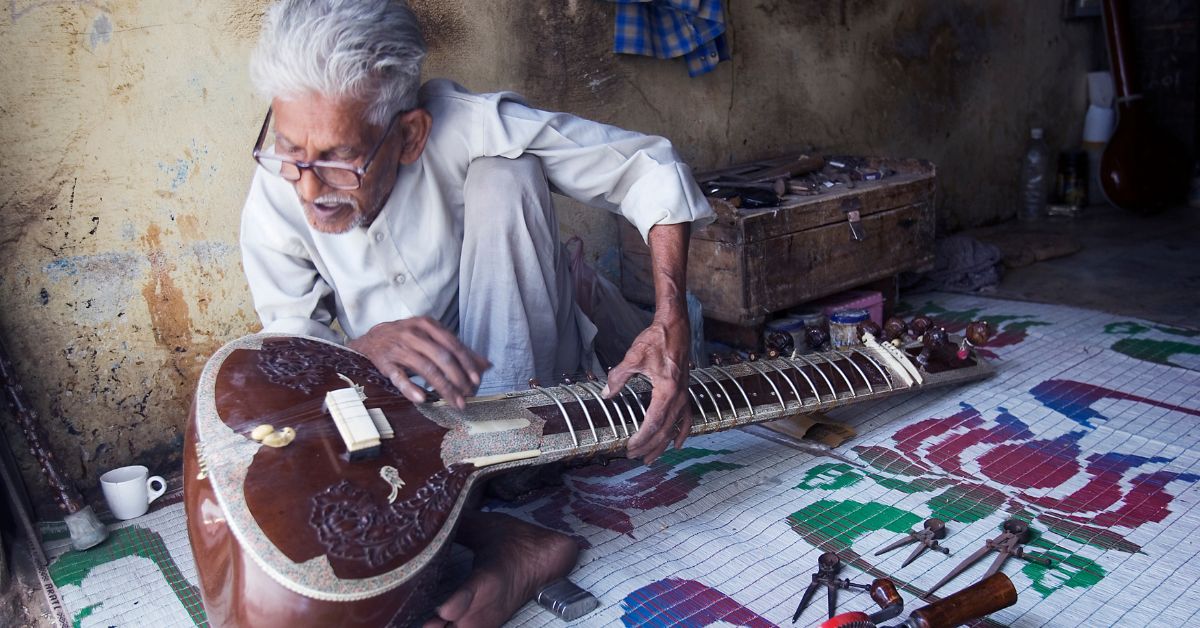How 7 Generations of Sitarmakers Started Making Instruments for India’s Top Musicians
The story of the Sitarmakers of Miraj dates back to the 18th Century. Even today, sitars, tanpuras and veenas made by these artisans are used by musicians across the country.

Miraj is India’s ancient city of musical instruments. Located in the southern part of Maharashtra, the historic town has been the centre of classical music for over 150 years.
Watch this video know more about India’s ancient city of musical instruments:
The string instruments of India — sitar, tanpura, and veena — made by the ‘Sitarmakers of Miraj’, are used in every corner of the country. Most of India’s top musicians get their equipment made by these legendary craftspersons.
The story of these artisans dates back to the 18th Century.
The Shikalgars were a community of blacksmiths who specialised in making military equipment as well as swords during the rule of the Maratha Empire. However, the introduction of modern weaponry led to a declining market, so the Shikalgar community drifted away from their traditional occupation.
But a turning point came in the lives and livelihoods of these artisans during the reign of Shrimant Balasaheb Patwardhan II when musicians from across the subcontinent were invited to perform in the city. With no place to repair their instruments locally, the King and the musicians turned to the Shikalgar community for help.
Lovers of music themselves, the community learnt the craft so well that they came to be known as ‘Sitarmakers’. Only people with a good understanding of music can master this craft. Hence, music became a thriving industry in Miraj.
To date, their instruments are carved by hand and involve little use of machines. It takes a month and about seven to eight people to make one tanpura. Families work together, overseeing each other’s work, and most workshops make 100-125 sitars and tanpuras a year.
The Sitarmakers have been at this for the last seven generations. But Miraj’s ancient music tradition is slowly dwindling as the surge of electronic instruments has now affected their business. The industry which once employed thousands has only a few hundred left.
(Edited by Pranita Bhat)
If you found our stories insightful, informative, or even just enjoyable, we invite you to consider making a voluntary payment to support the work we do at The Better India. Your contribution helps us continue producing quality content that educates, inspires, and drives positive change.
Choose one of the payment options below for your contribution-
By paying for the stories you value, you directly contribute to sustaining our efforts focused on making a difference in the world. Together, let’s ensure that impactful stories continue to be told and shared, enriching lives and communities alike.
Thank you for your support. Here are some frequently asked questions you might find helpful to know why you are contributing?


This story made me
-
97
-
121
-
89
-
167
















